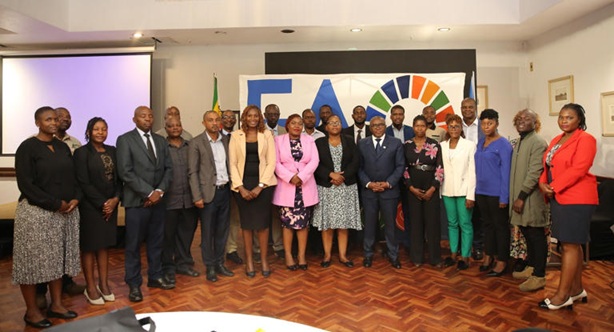New FAO-Led Project to Boost Agricultural Trade Between Zimbabwe and Mozambique
A new regional initiative aimed at transforming agriculture and trade in Southern Africa was launched this week with the inception of the Zimbabwe Mozambique Agricultural Value Chain and Trade Development Project (Zim-Moza ATDP).
The EUR 3.5 million project, funded by the Italian Agency for Development Cooperation (AICS), will see Zimbabwe receive EUR 1.166 million to strengthen its agricultural value chains and boost cross-border trade.
Led by the Food and Agriculture Organization (FAO) in collaboration with Zimbabwe’s Ministry of Lands, Agriculture, Fisheries, Water and Rural Development (MLAFWRD), the Zim-Moza ATDP seeks to deepen agricultural collaboration between Zimbabwe and Mozambique. The project will empower smallholder farmers, promote inclusive value chain development, and support sound trade policies.
“This project is a crucial step toward unlocking the immense potential of the agricultural sector in both countries,” said Patrice Talla, FAO Subregional Coordinator for Southern Africa. “By empowering smallholder farmers and strengthening public-private sector collaboration, we can create a more resilient and inclusive agricultural landscape.”
Speaking on behalf of Permanent Secretary Obert Jiri, Gamuchirai Kapembeza highlighted that the project aligns with Zimbabwe’s Agriculture and Food Systems Transformation Strategy and its National Development Strategies (NDS1 and NDS2). “This initiative is a key enabler in accelerating agrifood transformation across borders,” Jiri noted.
The Zim-Moza ATDP will focus on four priority areas:
- Capacity Building: Offering training and technical support for farmers and value chain players in production, post-harvest handling, and marketing.
- Market Access: Enhancing access to local and international markets via better infrastructure, market information systems, and trade promotion.
- Policy Support: Developing and promoting trade-friendly policies to encourage competitiveness and investment.
- Value Chain Development: Tackling constraints in key sectors like horticulture, livestock, and grains to foster innovation and efficiency.
FAO reiterated its commitment to working closely with both governments and the AICS to implement the project effectively. “Our collective goal is to ensure food-secure and economically vibrant nations,” said Talla.



